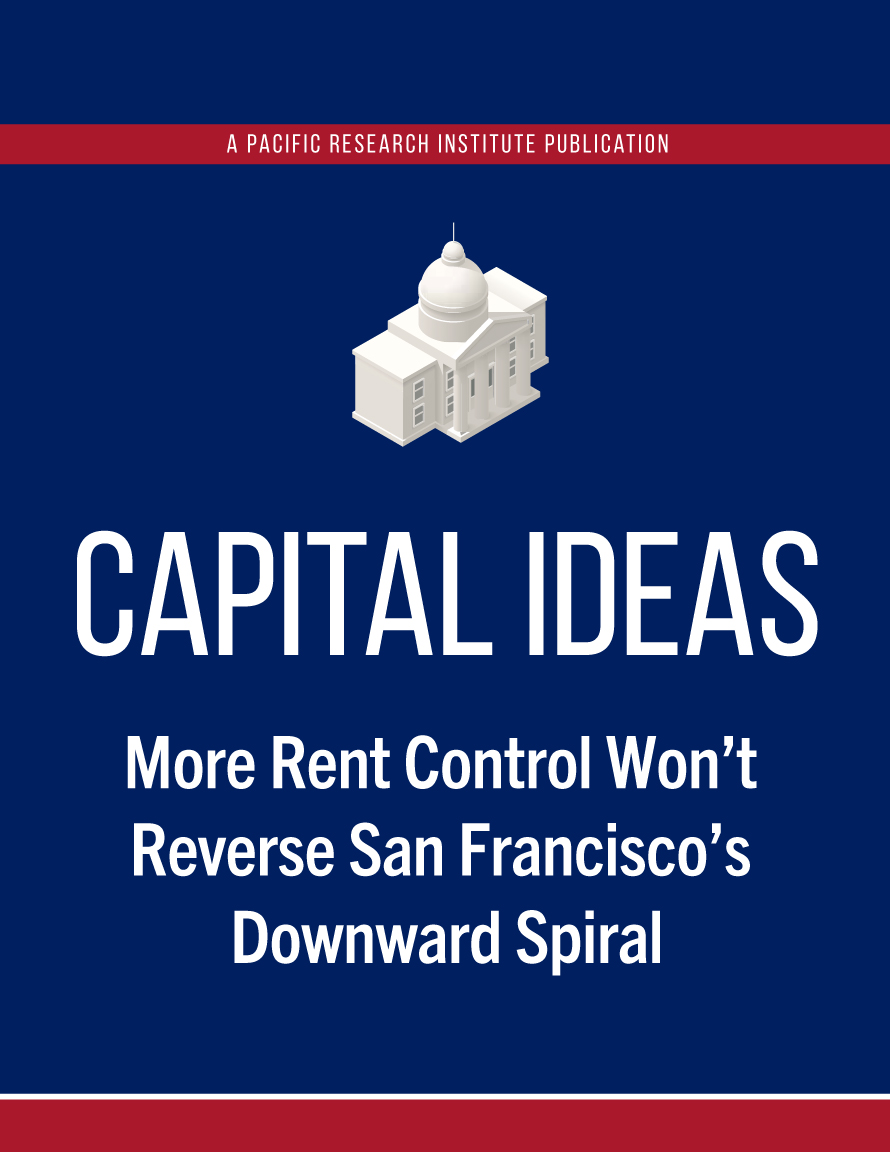How is it that, in 2024, elected officials still resort to rent-control laws as a pathway toward affordable housing? Are they low-information policymakers wholly ignorant of rent control’s negative impacts? Or ideologues who know better but nevertheless stick to their agenda?
In San Francisco, where the cost of housing is among the highest in the country, the Board of Supervisors is considering placing a ceiling on rents in some homes. Last month, the board’s Land Use and Transportation Committee voted 2-1 to expand rent control to about 100,000 San Francisco tenants who live in homes not currently under rent control. That was later replaced by a unanimously passed “scaled-back version,” which “would extend rent control to about 40,000 renters,” reports the San Francisco Chronicle.
Implementation depends on the outcome of Proposition 33 on the November ballot. Should it pass, then the 1995 Costa-Hawkins Rental Control Act, a state law that exempts some residential rental units from rent-control ordinances, would be repealed.
City halls would then be free to continue to wreck and ruin.
More than a half century ago, Swedish socialist economist Assar Lindbeck said – apparently not famously enough – “in many cases rent control appears to be the most efficient technique presently known to destroy a city – except for bombing.” This aphorism is widely known among limited-government and free-market thinkers. But apparently it has never been read by San Francisco’s political class.
“More than a critical tenant protection, rent control is the foundation of stable communities across San Francisco,” says Board of Supervisors President Aaron Peskin, who also happens to be a 2024 mayoral candidate.
The adverse consequences that follow rent control would seem self-evident. But clearly they’re not. So let’s follow up on Lindbeck’s quip.
The most bombed place on Earth might be Vietnam. In less than a decade, the U.S. Air Force dropped more than 6 million tons of bombs and other ordnance on Indochina. But it didn’t do as much damage to the North Vietnamese capital as the communist government did.
“The Americans couldn’t destroy Hanoi, but we have destroyed our city by very low rents,” Vietnam Foreign Minister Nguyen Co Thach said in 1989. “We realized it was stupid and that we must change policy.”
Hanoi is not an outlier. Rent control has bombed elsewhere. In “Economic Facts and Fallacies,” economist Thomas Sowell noted the destruction it caused in the Middle East.
The end result was that people stopped investing in apartment buildings, and a huge shortage in rentals and housing forced many Egyptians to live in horrible conditions with several families sharing one small apartment. The effects of the harsh rent control is still felt today in Egypt. Mistakes like that can last for generations.
We’ve seen this in the U.S., too, often in movies where the backdrop was a crumbling New York City.
“Rent control was one of the main reasons The Bronx in the 1970s was littered with collapsed or dilapidated apartments,” the Manhattan Institute’s Judge Glock recently pointed out in the New York Post.
It’s a good bet that the members of the San Francisco Board of Supervisors haven’t heard of Nguyen Co Thach or Glock (and maybe not even Sowell), that they are as unfamiliar to them as Lindbeck.
That’s tragic. Because San Francisco is by so many accounts caught in a “doom loop” that could make it the next Detroit, a shell of a formerly great city. It could apply the wisdom and experience of such men.
While there are some signs that San Francisco is recovering, those “brightened horizons have not completely banished the risk of a doom loop,” says the Chronicle. It’s unimaginable that placing more units under rent control will slow the downward spiral. Owners there who are denied by law to charge market rates will be forced into making difficult choices if Prop. 33 passes. In many instances they will forgo improvements and repairs, as both would cut into their profits, hastening the urban decay of what many believe to be one of the world’s most beautiful cities.
Of course they could withdraw units from the rental market, a sensible option for them though one that would make matters even worse for the city. So naturally some of the supporters of Prop. 33 want to repeal the Ellis Act, a state law that allows rental owners to walk away. They would force them to stay in business and lose money – a perfect “solution” for ideologues and economic illiterates.
Kerry Jackson is the William Clement Fellow in California Reform at the Pacific Research Institute and co-author of The California Left Coast Survivor’s Guide.

